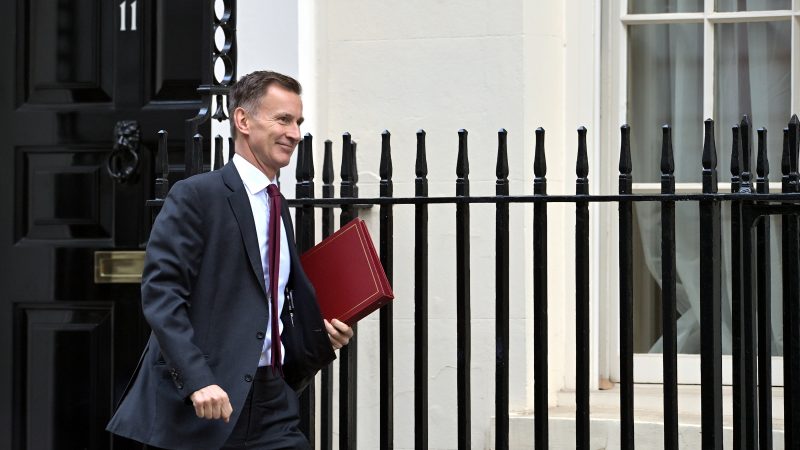
With quite some audacity, the Chancellor stood up in the House of Commons a month ago and said he was delivering “a Budget for growth” – just as documents published alongside it confirmed the UK economy was set to shrink this year.
As Jeremy Hunt was giving his speech, everyone reading the Office for Budget Responsibility’s report saw how that institution had downgraded the UK’s long-term growth forecasts. And in the month since, the news has got worse: last week the International Monetary Fund put the UK’s growth prospects this year at the bottom of the G20 biggest economies – a group which includes sanctions-hit Russia.
Now, this week, we have a chance to press Treasury Ministers on the detail of plans announced at the Budget, as we debate the Finance Bill in Parliament. This Bill seeks to implement the Chancellor’s plans – and so gives us a chance to show how these fail the tests of helping the economy to grow or easing the cost of living crisis.
First, we are pressing Ministers over the new investment allowance introduced by the Bill that the Chancellor trumpeted at the Budget as being key to increasing business investment. This allowance is supposed to boost investment – but as with previous Tory schemes, it’s marred by uncertainty and isn’t a permanent fix. According to the Office for Budget Responsibility, its temporary nature will simply move investment around between years, with no increase over the forecast period at all.
Paul Johnson of the Institute for Fiscal Studies did not pull any punches with his verdict of the Government’s approach, saying: “There’s no stability, no certainty, and no sense of a wider plan.”
That is why our Shadow Chancellor Rachel Reeves announced a Labour review on the business tax regime, focused on providing certainty and boosting investment. If the Conservatives are unable to provide that certainty, we will. Along with our Green Prosperity Plan and our active partnership with business, this approach will help us secure the highest sustained growth in the G7 – with good jobs and productivity growth in every part of the country to make everyone, not just a few, better off.
Second, whilst the Bill introduces further changes to operation of the windfall tax on oil and gas giants, Rishi Sunak still refuses to strengthen it as we have repeatedly called on the Conservatives to do. We have been calling for a one-off windfall tax on oil and gas giants since January last year – and it took months of dragging the Government, kicking and screaming, until they finally introduced their watered-down version of one last May.
The gaps in their approach are significant. Because of the Conservatives’ fossil fuels allowance loophole, Shell – who has made the biggest profits in its history – initially expected not to pay a penny last year. Since then, Ministers have stubbornly refused at every turn to follow our calls to close loopholes and strengthen it. This means billions of pounds of potential revenue are being left on the table – money that we argue should be taxed through a stronger windfall tax and used to freeze council tax this year.
This matters because families are still facing soaring costs and rising bills. People across the country are finding it harder to pay for a Tory penalty on their mortgage, higher energy and food costs, and they need a government who is on their side. And third, during this Finance Bill debate we will focus on the one permanent tax cut that it includes, which is to spend £1 billion a year making changes that will benefit the top one per cent of pension savers.
These changes have supposedly been brought in to encourage doctors not to retire early and to return to work. But the truth is that the British Medical Association has made clear a bespoke scheme for NHS doctors could cost as little as £32m to implement. Labour called for this change back in September, but the Government refuse to look at it. We will be pushing the Conservatives again to change their position. With £1 billion of public money before them, the Government could have chosen to spend it on those bearing the brunt of their failures in the middle of a cost of living crisis.
But they did not spend it on helping families on modest incomes, young people unable to get on the housing ladder, or pensioners struggling with rising prices. Instead, they handed it to the richest 1%.
After 13 years of economic failure, we need so much more than this managed decline and these poor political choices. We need a government that is ready to get the economy growing again, one that is ready to help businesses and people across the country succeed. We need a government that will build a better Britain, and that is what Labour will bring.



More from LabourList
‘I disagreed with Frank Field, but he was no Tory and I loved him all the same’
Frank Field and David Marquand: Tributes flow in to ‘social justice crusader’ and ‘giant of social democracy’
‘National flags and identity can be inclusive – we’re right to embrace them’